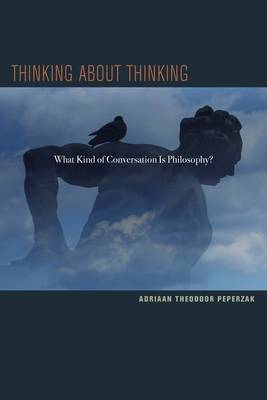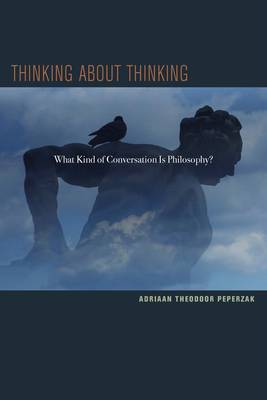
- Retrait gratuit dans votre magasin Club
- 7.000.000 titres dans notre catalogue
- Payer en toute sécurité
- Toujours un magasin près de chez vous
- Retrait gratuit dans votre magasin Club
- 7.000.000 titres dans notre catalogue
- Payer en toute sécurité
- Toujours un magasin près de chez vous
Thinking about Thinking
What Kind of Conversation Is Philosophy?
Adriaan T Peperzak
Livre relié | Anglais
103,45 €
+ 206 points
Format
Description
Thinking about Thinking examines philosophy from a variety of perspectives as a the practice realized by persons who communicate with one another while reflecting about the meaning of human life and thought. Without forgetting the logical and methodological conditions of systematic thought, the author insists on the intimate connections that tie all philosophical texts and conversations to the lives from which they emerge. As product of an individual thinker, who, thanks to individual teachers, has been familiarized with particular traditions of a particular culture, each philosophy is unique. If it is a good one, it is also revealing for many--perhaps even for all--other philosophers. At the same time, all thinking is addressed to individual interlocutors, each of whom responds to it by transforming it into a different philosophy. This fact invites us to explore the dialogical dimension of thinking, which, in turn, refers us to the communitarian and historical contexts from which solitude, as well as solidarity, competition, alliances, and friendships in thought emerge. After the collapse of modern autonomy, the question of philosophy's dependence on prephilosophical conditions is a basic question of metaphilosophy -- especially if a philosophy is always entangled with or even rooted in some belief or trust or faith.
Spécifications
Parties prenantes
- Auteur(s) :
- Editeur:
Contenu
- Nombre de pages :
- 222
- Langue:
- Anglais
Caractéristiques
- EAN:
- 9780823240173
- Date de parution :
- 14-03-12
- Format:
- Livre relié
- Format numérique:
- Genaaid
- Dimensions :
- 152 mm x 229 mm
- Poids :
- 417 g







